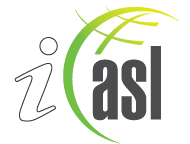

|
|
IASL Research Abstracts: 203
Boelens, H. (2007). Knowledge Management in Secondary Schools and the Role of the School Librarian. Netherlands.
At the beginning of the 21st century, educators are facing new visions, theories, and aims of education in a changing environment. In these “new kinds of learning,” concepts such as individual learning, cooperative learning, e-learning, and lifelong learning have become important. New visions of learning suggest that pupils can learn to manage or control their own acquisition of knowledge. The introduction of ICT in schools has also contributed to these new visions and has caused enormous changes in the schools themselves. The role of the school librarian and the goals of the school library in the school have also changed. The school librarian needs to retain the ability to run and maintain the important traditional role of the school library, but must also act as an information specialist who coordinates the management of information and knowledge in the school and accesses information and knowledge from outside the school. As the new school information specialist, the school librarian may need retraining in knowledge management. Strong school management, strong infrastructure, and good communication in the school also are essential to the knowledge management process. The content of this article is part of the author’s doctoral research at the Middlesex University School of Lifelong Learning and Education in London.
School Libraries Worldwide, 13(2), 63-72.
Subject categories: 3, 6, 12, 13, 20
Abstract submitted by Rachel Pultusker, University of Michigan.
